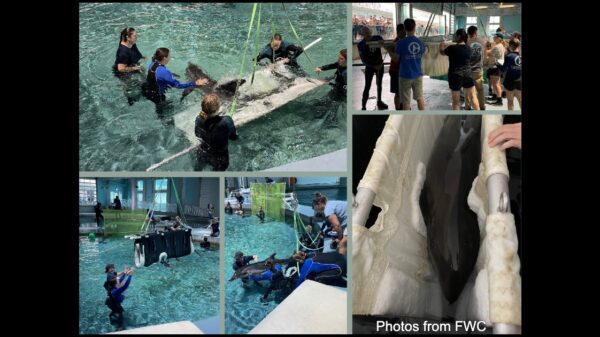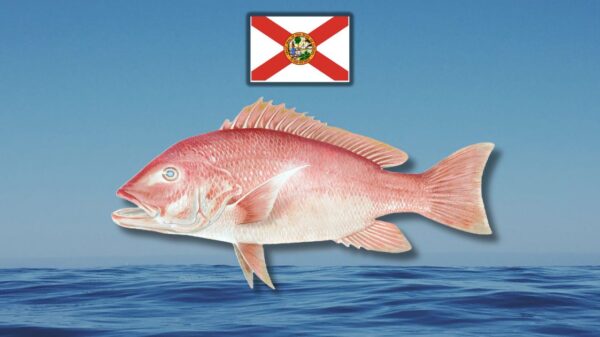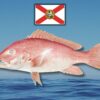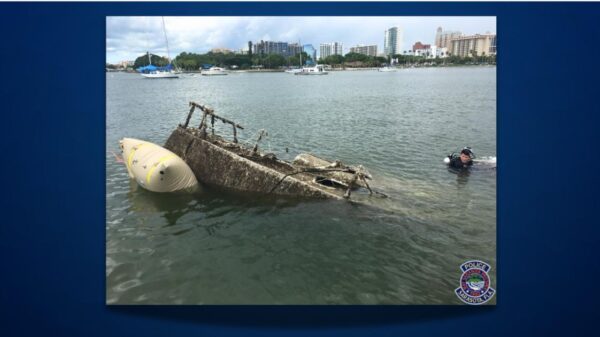Last week, Florida Fish and Wildlife Commission (FWC) announced the arrest of 10 individuals from Atlanta for the unlawful use of a monofilament entanglement net (gill net) for the take of several species of fish and sharks at the Skyway Bridge North Rest Area.
The four gill nets in possession of the suspects measured 1,660 feet in length, which is more than four and a half football fields of netting. More than 500 pounds of fish and sharks were seized.
Marcos Lopez Navarrete, Ernesto Lopez Navarrete, Roberto Gonzalez Lopez, Carlos Lopez Santana, Fredy Lopez Navarrete, Fredy Lopez Reyez , Rafael Castro Herrera, Daniel Reyez Valente , Efren Lopez Navarette and Lorenzo Lopez Navarette were each charged with the following:
One count third-degree felony – use of gill net in state water.
One count first-degree misdemeanor – major violation pertaining to snook.
Two counts second-degree misdemeanor – undersized sheepshead.
13 counts second-degree misdemeanor – undersized black drum.
Four counts second-degree misdemeanor – undersized permit.
Five counts second-degree misdemeanor – illegal method of harvest of snook.
Five counts second-degree misdemeanor – undersized snook.
Five counts second-degree misdemeanor – out-of-season snook.
Three counts second-degree misdemeanor – undersized trout.
Nine counts second-degree misdemeanor – illegal method of harvest of shark.
Nine counts second-degree misdemeanor – illegal method of harvest of blue crab.
The maximum penalty for a third-degree felony charge is five years imprisonment and/or a $5,000 fine. The maximum penalty for a first-degree misdemeanor charge is one year in jail and/or a $1,000 fine, and each second-degree misdemeanor holds a penalty of up to 60 days in jail and/or a $500 fine.
This case was the result of a combination of proactive law enforcement work and surveillance, as well as an anonymous tip received from a concerned citizen who saw the nets in the water.
“This case is a great example of the important work our officers do every day to protect Florida’s natural resources,” said FWC SW Regional Commander, Maj. Rob Rowe. “The use of these nets is illegal and harmful to the fish and wildlife that are indiscriminately killed when they become entangled in it.”
The gear used in the commission of these activities was seized by the FWC.
Gill nets are any net constructed entirely or partially of monofilament material other than a cast net or a landing dip net. They are typically vertical sections of net that are stretched out on a rope suspended by a float and typically work by “gilling” the fish and entangling them within the mesh. With the exception of very small fish that escape through the mesh, the majority of marine life that becomes entangled in the net die. This type of net can be especially devastating for sea turtles and marine mammals.
Voters approved a Constitutional Amendment to ban these types of nets from Florida’s waters, which went into effect on July 1, 1995. All violations pertaining to gill nets in state waters constitute a felony of the third degree.























